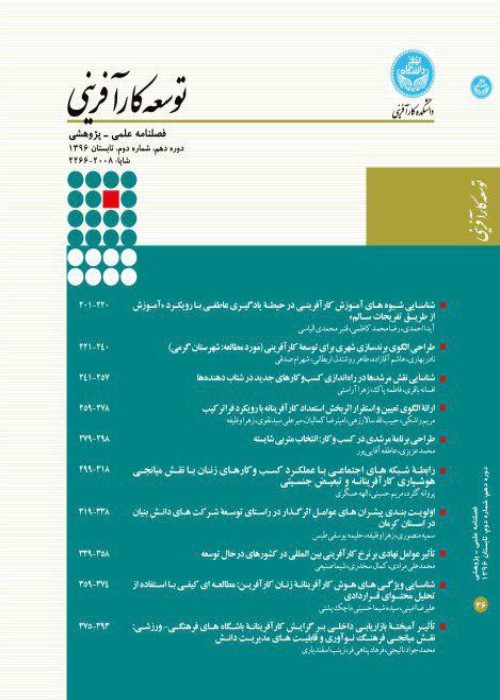Exploring the concept of business resilience from different perspectives: A qualitative meta-analysis
This paper aims to comprehensively review the conceptualizations of "business resilience" in the context of entrepreneurship and gather different perspectives on the topic. The goal is to provide conceptual clarity and enhance theoretical and practical outcomes in entrepreneurship research.
This research is a descriptive study carried out using the qualitative meta-analysis (QMA) method. The purpose of this method is to qualitatively summarize a set of researches in terms of concepts, methods, results, context, etc. This method especially is used when the central issue has been investigated from various perspectives. By searching for research published between 2000 to 2020, containing “resilience” in the title, approximately 10,500 records were found. Filtering the document and journal titles with certain words led to 1260 records. At this stage, a group of papers was selected for further analysis by reviewing titles and abstracts. After detailed examination, 85 studies were selected for qualitative analysis and coding. Thereafter, subsequent steps for conducting a qualitative meta-analysis research including the appraisal of primary studies, preparing data, data analysis and credibility checks are followed.
The final results of the analysis are provided in three main parts. At first, the definitions of resilience were categorized into six groups. Then, similar concepts to resilience were classified into four groups based on crisis occurrence time. Finally, a network of related concepts to business resilience was developed. This network has eight parts. According to this conceptual network, resilience is assumed to have three main definitions in general. Some define “resilient business” as “a business that has survived after the disaster”, some assume it to be “a business that has recovered to the same performance level in comparison to the pre-disaster state”, and others describe it as “a business that has improved its performance to a higher level”. Also, resilience has been explained at four levels: “regional economic resilience”, “social resilience”, “business resilience”, and “resilience of the entrepreneur”. Moreover, resilience has been studied by three main approaches, namely “engineering”, “ecological” and “adaptive”. Considering the required duration to evaluate resilience, some believe that resilience could be evaluated at any “point” in time, while others declare that it is necessary to consider a “duration” of time for evaluation.
The literature on business resilience is rich at the individual and business levels but lacks research at macro levels. Integrating ecological and adaptive approaches with the engineering approach would contribute significantly to the field. It is suggested to categorize concepts into "active-passive" and "absorptive-adaptive" dualities and avoid the use of numerous overlapping terms and definitions found in the literature.
Business , Disaster , Entrepreneurship , resilience , SMEs
- حق عضویت دریافتی صرف حمایت از نشریات عضو و نگهداری، تکمیل و توسعه مگیران میشود.
- پرداخت حق اشتراک و دانلود مقالات اجازه بازنشر آن در سایر رسانههای چاپی و دیجیتال را به کاربر نمیدهد.



